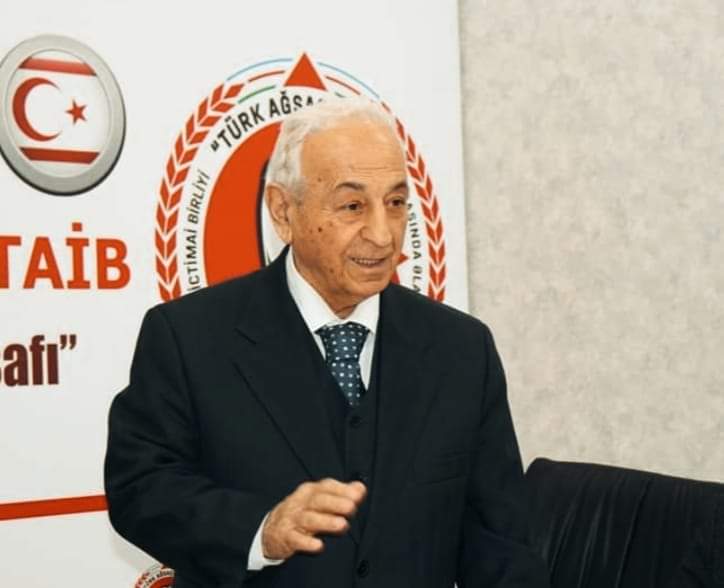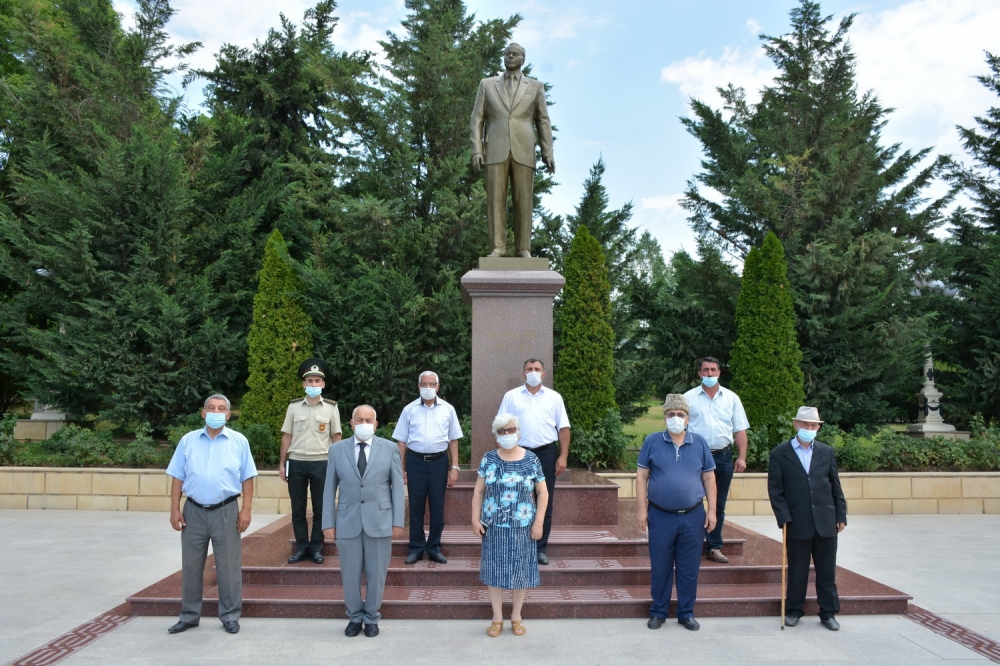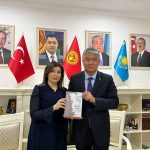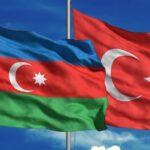28 May – The Independence Day of the Republic of Azerbaijan

May 28, 1918, marks a pivotal date in the history of Azerbaijan. On this day, the Azerbaijan Democratic Republic (ADR) was proclaimed, making Azerbaijan the first democratic and secular republic in the Muslim world. The declaration came in the wake of the Russian Empire’s collapse during World War I, offering a unique opportunity for the Azerbaijani people to assert their sovereignty.
The establishment of the ADR was a monumental event, spearheaded by the Azerbaijani National Council under the leadership of Mammad Amin Rasulzade. The council declared independence in Tiflis (present-day Tbilisi, Georgia), emphasizing the principles of democratic governance, equality, and civil liberties.
Despite its brief existence from 1918 to 1920, the ADR made significant strides in state-building:
Parliamentary system: The ADR instituted a parliamentary democracy, with a multi-party system that represented various social groups and ethnic minorities.
Education and culture: A key priority was the development of national education. Baku State University was established in 1919, becoming a center for higher education in the region.
Foreign relations: The ADR pursued active diplomacy, establishing diplomatic missions in several countries and gaining de facto recognition from major powers.
Economic development: Efforts were made to modernize the economy, focusing on the oil industry, which was a cornerstone of Azerbaijan’s wealth.
However, the ADR faced numerous challenges, including internal political instability, ethnic conflicts, and external threats. These difficulties culminated in the Soviet Red Army’s invasion in April 1920, leading to the dissolution of the ADR and incorporation of Azerbaijan into the Soviet Union.
National Leader Heydar Aliyev’s contributions
Heydar Aliyev, often referred to as the “National Leader” of Azerbaijan, played a crucial role in the country’s modern history. Though his primary period of influence came after the Soviet era, his contributions significantly impacted Azerbaijan’s development and the celebration of its national identity. National Leader Haydar Aliyev began his significant political career in the 1960s, eventually becoming the First Secretary of the Azerbaijan Communist Party in 1969. Under his leadership, Azerbaijan saw considerable industrial, agricultural, and educational advancements, despite the constraints of the Soviet system.
Following Azerbaijan’s independence from the Soviet Union in 1991, the early years of the republic were marked by political turmoil and conflict, particularly the Karabakh War. National Leader Haydar Aliyev returned to power in 1993 amidst this crisis, initially as the chairman of the parliament and subsequently as president. National Leader Haydar Aliyev’s presidency (1993-2003) brought significant stability to Azerbaijan. He implemented crucial economic reforms, attracted foreign investments, particularly in the oil sector, and laid the foundations for modern infrastructure projects. National Leader Haydar Aliyev oversaw the adoption of a new constitution in 1995, which provided for a multi-party system and an executive presidency, contributing to the establishment of a stable governance framework.
National Leader Haydar Aliyev placed a strong emphasis on preserving and promoting Azerbaijani culture, history, and language. His policies fostered a resurgence of national pride and cultural renaissance, aligning with the principles laid down during the ADR.
Following the death of National Leader Heydar Aliyev in 2003, his son Ilham Aliyev took over the presidency, continuing his father’s legacy while also shaping his own vision for Azerbaijan’s future.
President of the Republic of Azerbaijan Ilham Aliyev has focused on diversifying Azerbaijan’s economy beyond its reliance on oil and gas. His administration has promoted sectors like agriculture, tourism, information technology, and renewable energy. Significant investments in infrastructure, such as the Baku-Tbilisi-Kars railway, have bolstered Azerbaijan’s position as a regional transit hub. President of the Republic of Azerbaijan Ilham Aliyev has strengthened Azerbaijan’s role in global energy markets. Projects like the Southern Gas Corridor have enhanced Europe’s energy security and cemented Azerbaijan’s status as a key energy supplier. The country’s strategic partnerships with energy companies and nations have been pivotal in these efforts.
The 44-Day War and its impact
A significant event in Azerbaijan’s recent history is the 44-day war, also known as the Second Karabakh War, which took place from September 27 to November 10, 2020. This conflict had a profound impact on Azerbaijan, both politically and socially.
The war was a continuation of the long-standing dispute between Azerbaijan and Armenia over the Karabakh region, a territory internationally recognized as part of Azerbaijan. The conflict had been unresolved since the ceasefire in 1994. During the 44 days, Azerbaijan launched a military offensive to reclaim territories occupied by Armenian forces. The conflict saw significant use of modern warfare technologies, including drones and precision-guided munitions, leading to swift advances by Azerbaijani forces.
Brave Azerbaijani soldiers and officers, moving forward step by step, broke through the engineering and fortification systems built by Armenia over the years. Our lands were liberated at the cost of the blood and lives of our soldiers and officers, our martyrs.
The war concluded with a trilateral ceasefire agreement brokered by Russia on November 10, 2020. Azerbaijan’s victories in the military field, especially the liberation of Shusha from occupation on November 8, played a decisive role in the fate of the war, thus Armenia admitted its defeat. According to the Statement signed on November 10, 2020 by the President of the Republic of Azerbaijan, the Prime Minister of the Republic of Armenia and the President of the Russian Federation, the war ended with the victory of Azerbaijan. Armenia capitulated and was forced to return Kalbajar, Aghdam and Lachin districts to Azerbaijan. Under the terms of the agreement, Armenia agreed to withdraw from several districts surrounding Karabakh, and Russian peacekeepers were deployed to oversee the ceasefire. Azerbaijan regained control over significant portions of the disputed territories, including key strategic locations like Shusha, which was culturally and historically important to both nations. The victory bolstered national pride and was widely celebrated across Azerbaijan. It also strengthened the government’s position, with President Ilham Aliyev, the son of National Leader Aliyev, receiving widespread support for his leadership during the conflict. The war resulted in substantial human suffering, including civilian casualties, displacement, and destruction of infrastructure. Efforts are ongoing to address the humanitarian aftermath and facilitate the return of displaced persons to their homes.
By the Presidential Decrees dated December 2, 2020, September 27 was declared the Day of Remembrance, and November 8 – Victory Day in the Republic of Azerbaijan.
Independence Day of the Republic of Azerbaijan on May 28 is a major national holiday in Azerbaijan, celebrated with great enthusiasm across the country. It serves as a reminder of the country’s journey towards independence and the democratic values established by the ADR.
The day is marked by official state ceremonies, including the laying of wreaths at the monument of Mammad Amin Rasulzade and other significant national figures. Government officials, including the president, often deliver speeches highlighting the historical importance of the day. Numerous cultural events, such as concerts, exhibitions, and performances, are organized to celebrate Azerbaijani heritage. These events showcase traditional music, dance, and art, fostering national pride and unity. Schools and universities hold special sessions and lectures to educate students about the ADR’s history and its contributions to Azerbaijan’s development. These activities aim to instill a sense of historical consciousness among the younger generation. Citizens actively participate in the celebrations, often displaying the national flag and attending various public events. The sense of unity and patriotism is palpable as people commemorate their shared history and achievements.
The celebration of May 28 as Independence Day is a testament to Azerbaijan’s enduring spirit of independence and democracy. The Azerbaijan Democratic Republic’s establishment and its brief but impactful existence laid the groundwork for the modern Azerbaijani state. National Leader Heydar Aliyev’s leadership further solidified the nation’s path toward stability and prosperity, leaving a lasting legacy that continues to influence Azerbaijan’s development.
As Azerbaijan celebrates İndependence Day each year, it reflects on its past achievements, honors its national heroes, and looks forward to a future defined by continued growth and success. The resilience and determination of the Azerbaijani people, guided by the principles of their historical and contemporary leaders, ensure that the spirit of May 28, 1918, remains alive in the hearts and minds of the nation. The 44-day war in 2020 reaffirmed Azerbaijan’s commitment to territorial integrity and showcased its military capabilities, resulting in a significant national morale boost.
Assoc. Prof. Dr. Murteza HASANOĞLU














